What is peat-free compost and why should I buy it? Our guide explains all
Want to get the lowdown on peat-free compost? We've put together everything you need to know, including the benefits and costs

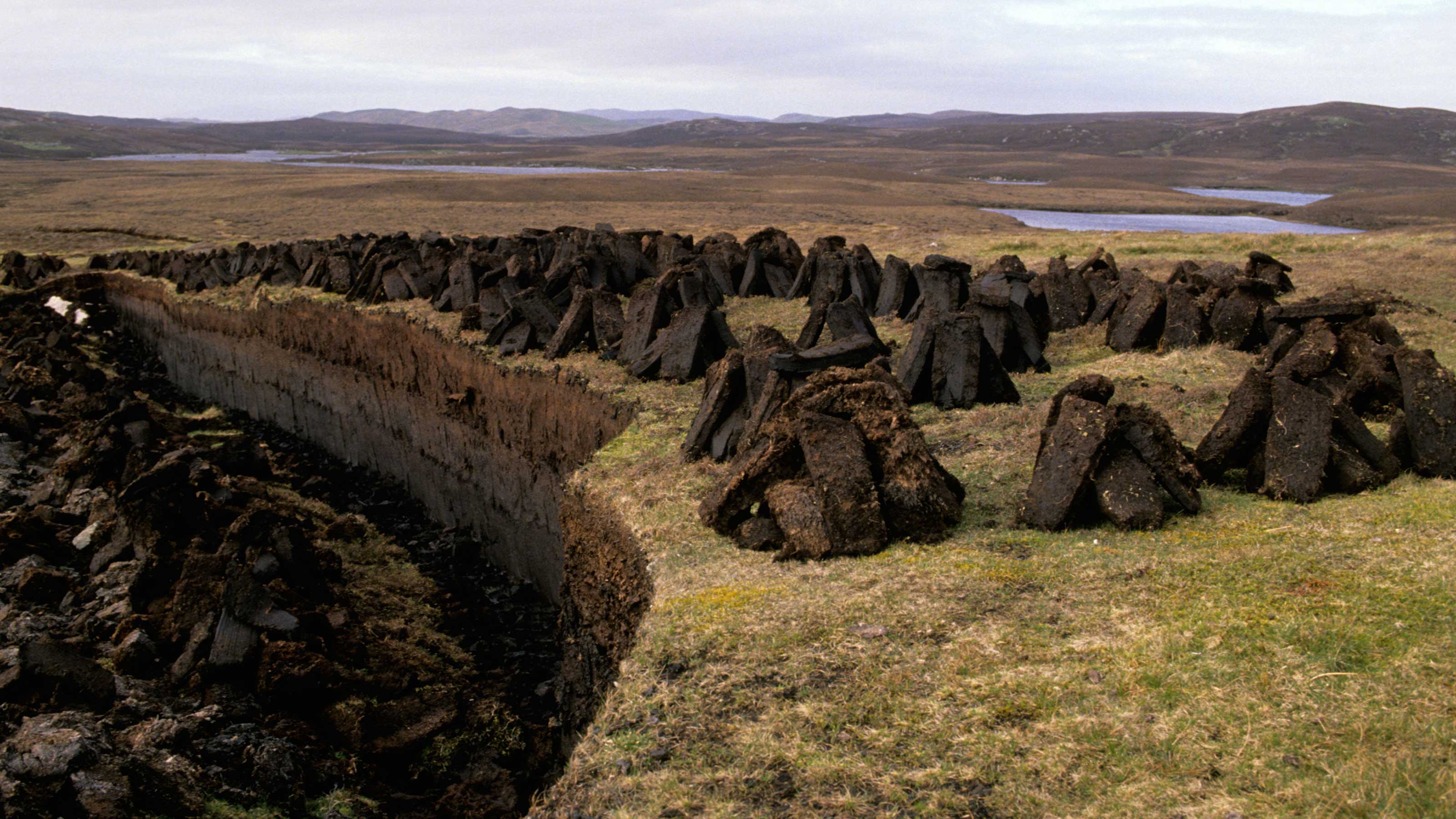
You've probably heard about peat-free compost already, or perhaps you've spotted it on the shelves at garden centers. You may even use it in your own backyard. But do you know exactly what it is, and why it's such a hot topic? If you're unsure, then we're here to explain.
Most gardeners know the importance of good compost for fertilizing plants and improving the soil. In fact, a lot of people choose to do their own composting in their garden – it's cheaper than buying ready-filled bags and is a great way to recycle food scraps. But, not everyone has the time and space to make all the compost they need themselves.
Until quite recently, peat compost was a go-to choice for many gardeners who were short on time and needed to give their flowerbeds a boost. It's moisture retentive and, as it's made from partially rotted down plants, is high in nutrients. But nowadays, more and more people are aware of the damage that harvesting peat causes to the environment and are opting to go peat-free instead. And once you know all the facts about peat, it's likely you will, too.
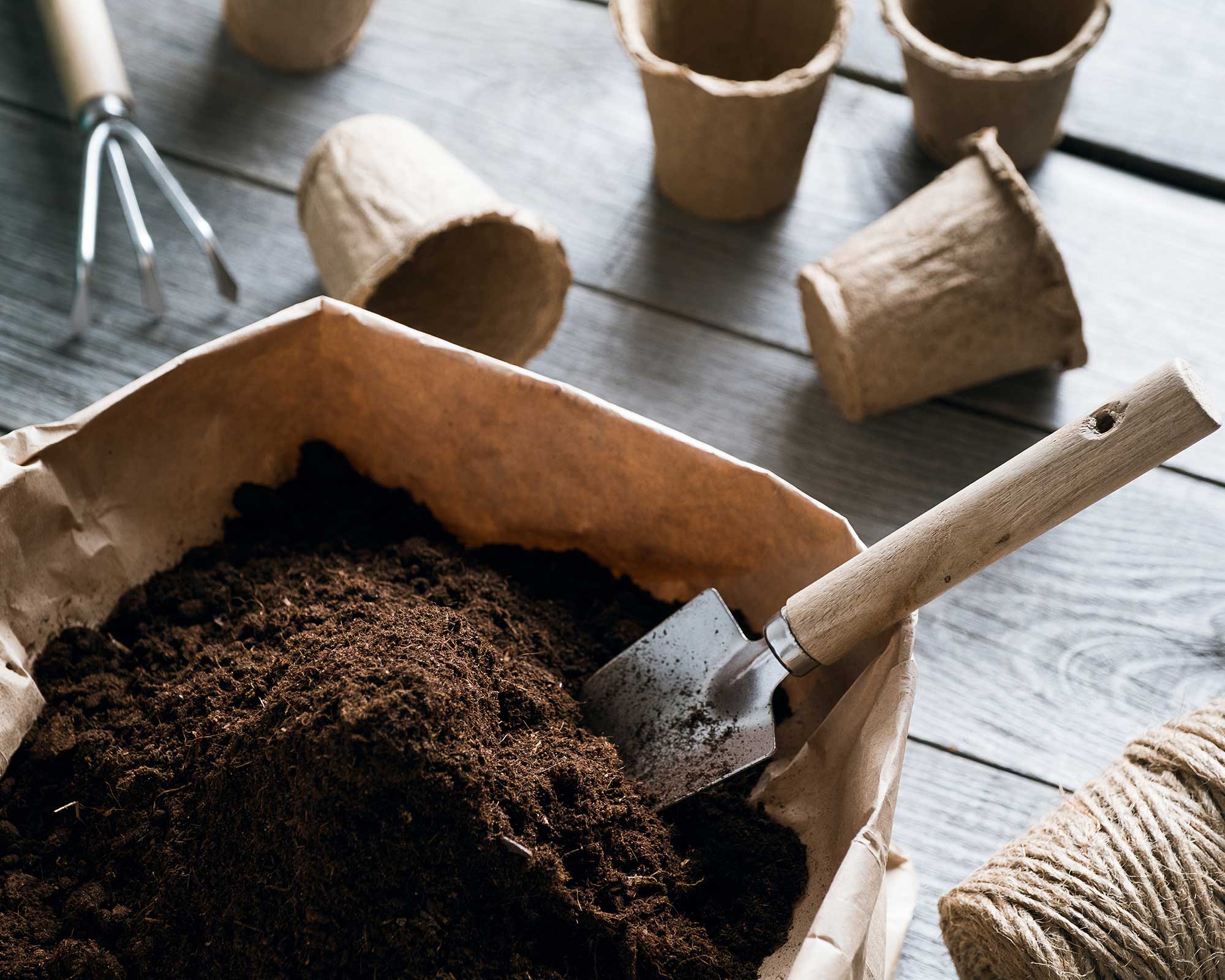
Peat-free compost: everything you need to know
Curious to find out more? You've come to the right place. We answer all the questions you might be wondering about peat-free compost below.
What is peat?
Let's start by looking at what peat actually is. It's primarily decomposed plant matter, which has partially broken down over thousands of years in swamp areas known as peatlands. The majority of peatlands are found in the Northern Hemisphere, although there are peatlands in tropical regions too, such as Southeast Asia and South America.
To harvest peat, all vegetation from the peatlands is removed and the bogs are drained. The harvested peat has then been used not just as compost for gardens, but also as a fuel for heating and electricity over the years.
However, peat builds up very slowly – at a rate of 1–2mm per year. This is much slower than it is harvested, meaning it is a non-renewable resource. So, it's definitely not a good idea to use it if you're aiming for a sustainable garden.
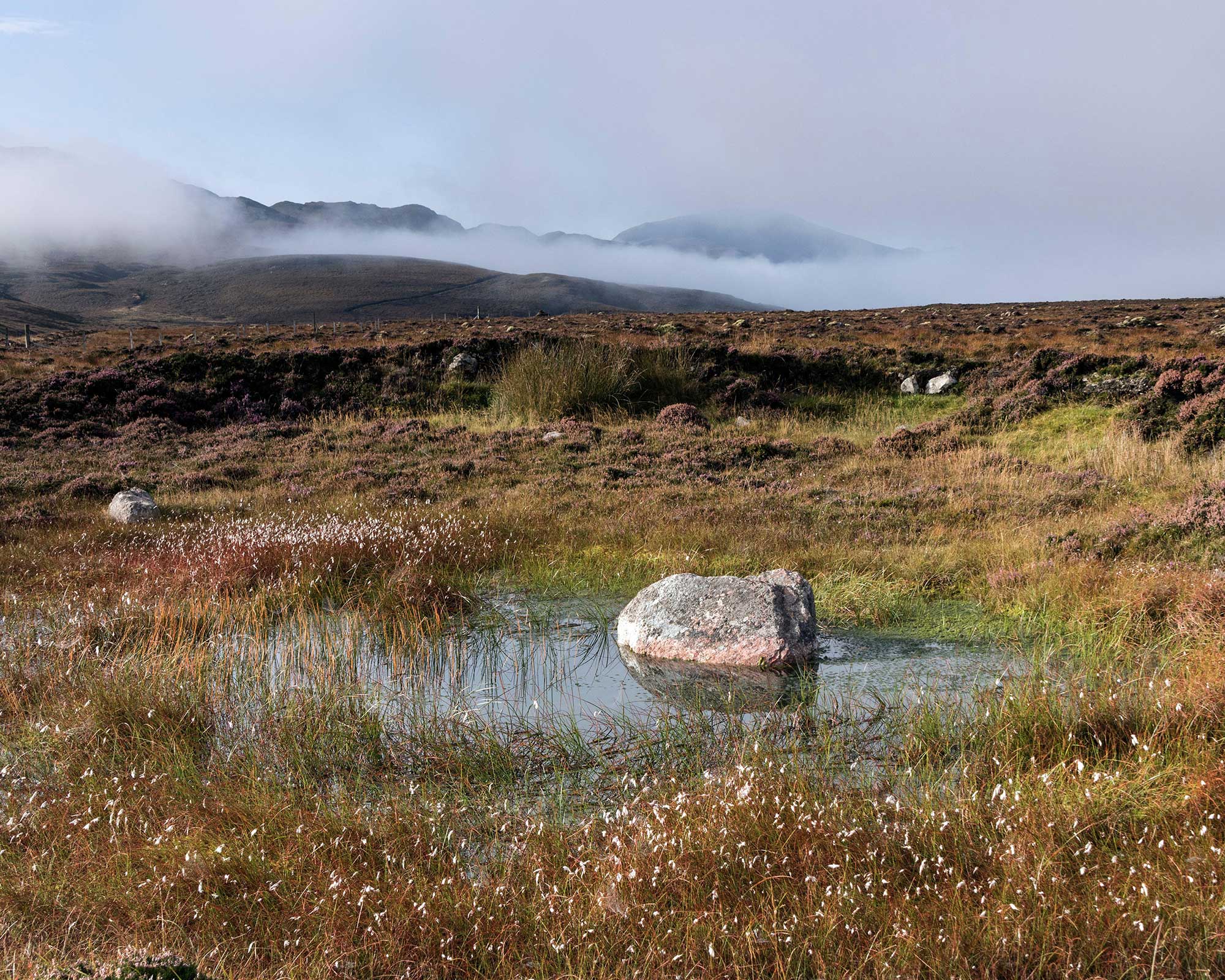
What is peat-free compost?
Peat-free compost is – you've guessed it – compost which doesn't use any peat in it at all. It's important to note that many multipurpose compost products include peat, which isn't always clear at first glance.
However, peat-free compost is becoming increasingly available to buy. As the RHS explains, a mixture of organic and inorganic materials can be used to create it, including things like coir (coconut fibre), composted bark or green waste, grit, and perlite. 'Different formulations have different balances of nutrients,' they say, so it's a good idea to carefully read the label to check the suitability of the compost for your garden.
Of course, you can also make your own compost at home. And if you want to speed the process up, why not try your hand at worm composting, or hot composting?
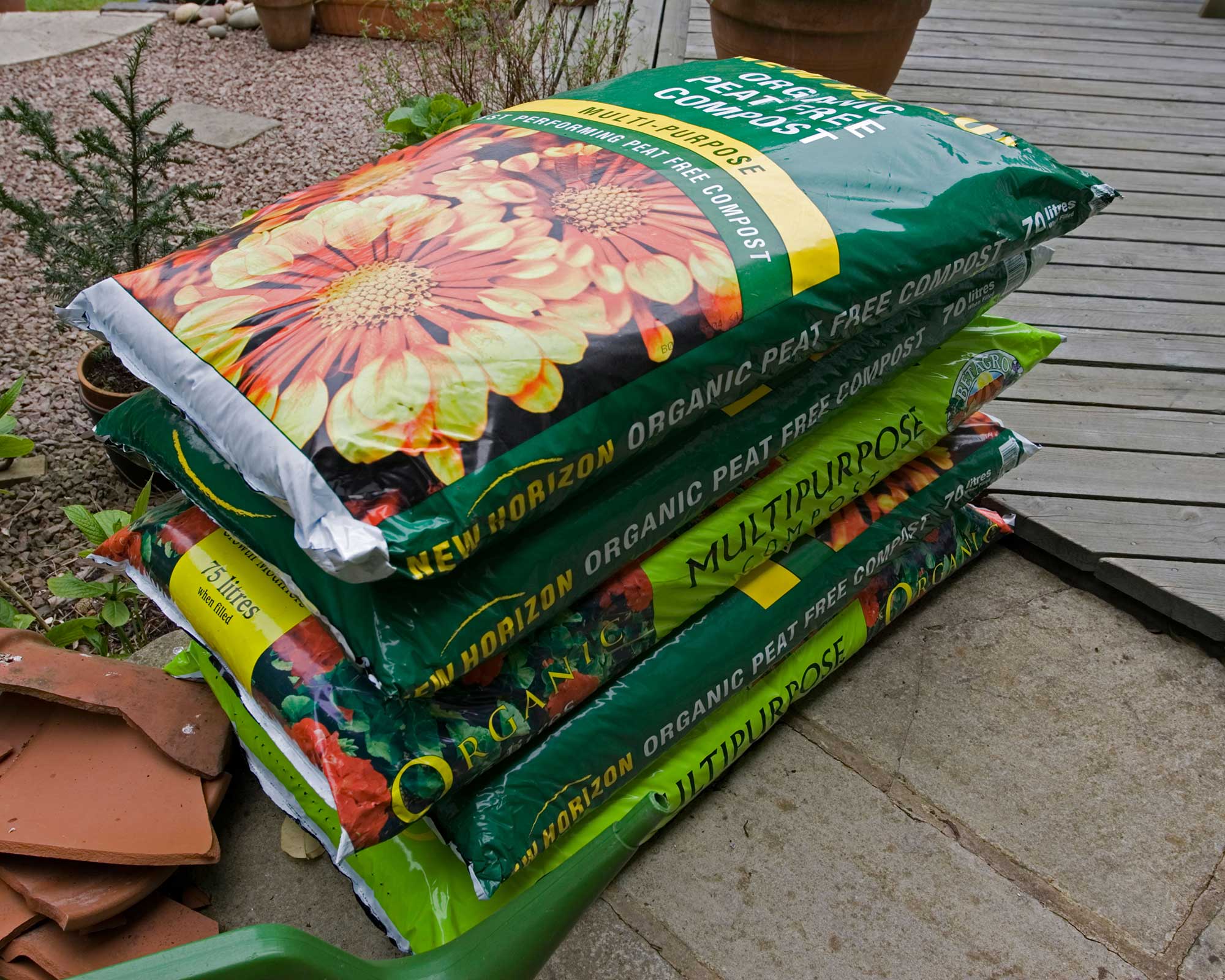
How does peat-free compost benefit the environment?
Peat is a big talking point when it comes to protecting our environment. But why?
Well for starters, peatlands are what's know as a carbon sink – they absorb a huge amount of carbon dioxide – a greenhouse gas – from the atmosphere. Damaging these peatlands results in all this carbon dioxide being released into the air – an estimated 23 million tonnes of it every year from UK peatlands alone, according to The Wildlife Trusts. Of course, as the awareness of global warming and climate change grows, it's easy to see why this is such a problem.
What's more, harvesting peatlands impacts all the flora and fauna which inhabit and depend on them, many of which are already scarce. Plus, peatlands are good for water management and minimizing floods. As the National Trust says, 'peat holds up to 20 times its own weight in water'.
As Nikki Williams, Director of Campaigning and Policy at The Wildlife Trusts says, 'Peat has for too long been presented as a plentiful and perfect product in which to grow plants, but if gardeners could see the destruction that peat extraction has caused to habitats around the globe, they would be truly horrified.'
- If you're looking for more ways to make your yard environmentally-friendly, then our wildlife garden ideas will come in useful.
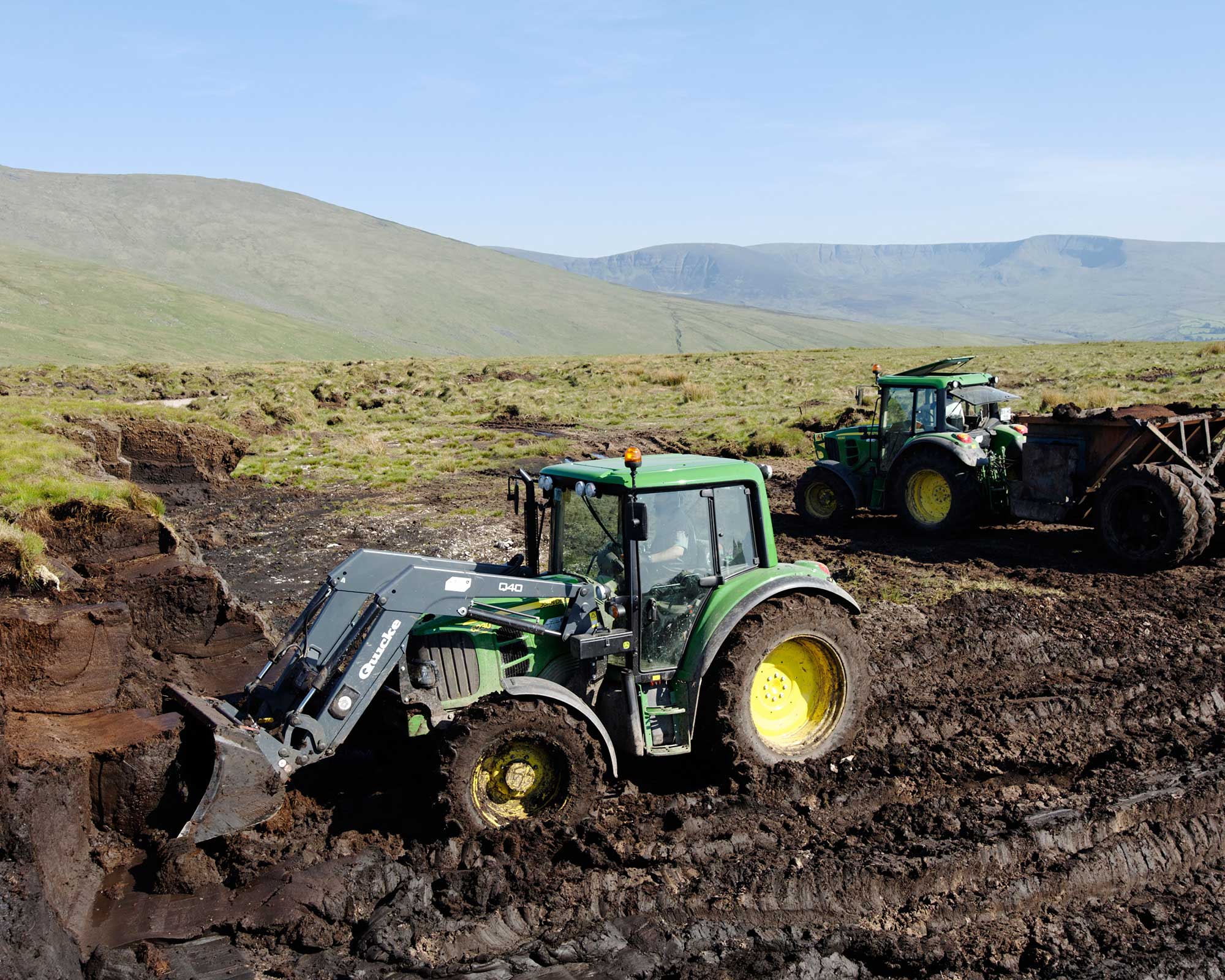
Is peat-free compost any good?
The quality of peat-free compost has greatly improved over the years, as says the RHS. So even if you've tried them in the past and had poor results, it's well worth trying again – especially when you factor in how much better for the environment they are.
Green-based compost tends to have tons of nutrients which makes it a good choice for mulch or as a soil improver. Wood-based compost is generally good at drainage, whilst coir is a good growing medium due to its open structure.
The nutritional benefits can also last longer than they do with peat compost. Craig Sams, Executive Chairman at the organic compost brand Carbon Gold, says that 'many of these products offer far longer-lasting results, offering better value for money in the long run. For example, coir-based compost containing biochar will last up to four times longer than its peat counterpart, whilst biochar-based soil improver provides permanent benefits.'
However, when making the switch, it's always worth doing your research and checking that your chosen mixture will suit whatever you need to use it for – whether that's mulching, seed-sowing, or planting up your containers. You may also need to adjust your usual approach somewhat. For instance, Peter Hill explains in The Guardian how coir-based composts often look dry on the surface when they are actually still wet. This can lead to problems with overwatering.
- Want to have a go at making your own compost? Our buying guide to the best compost bins is a great place to start.
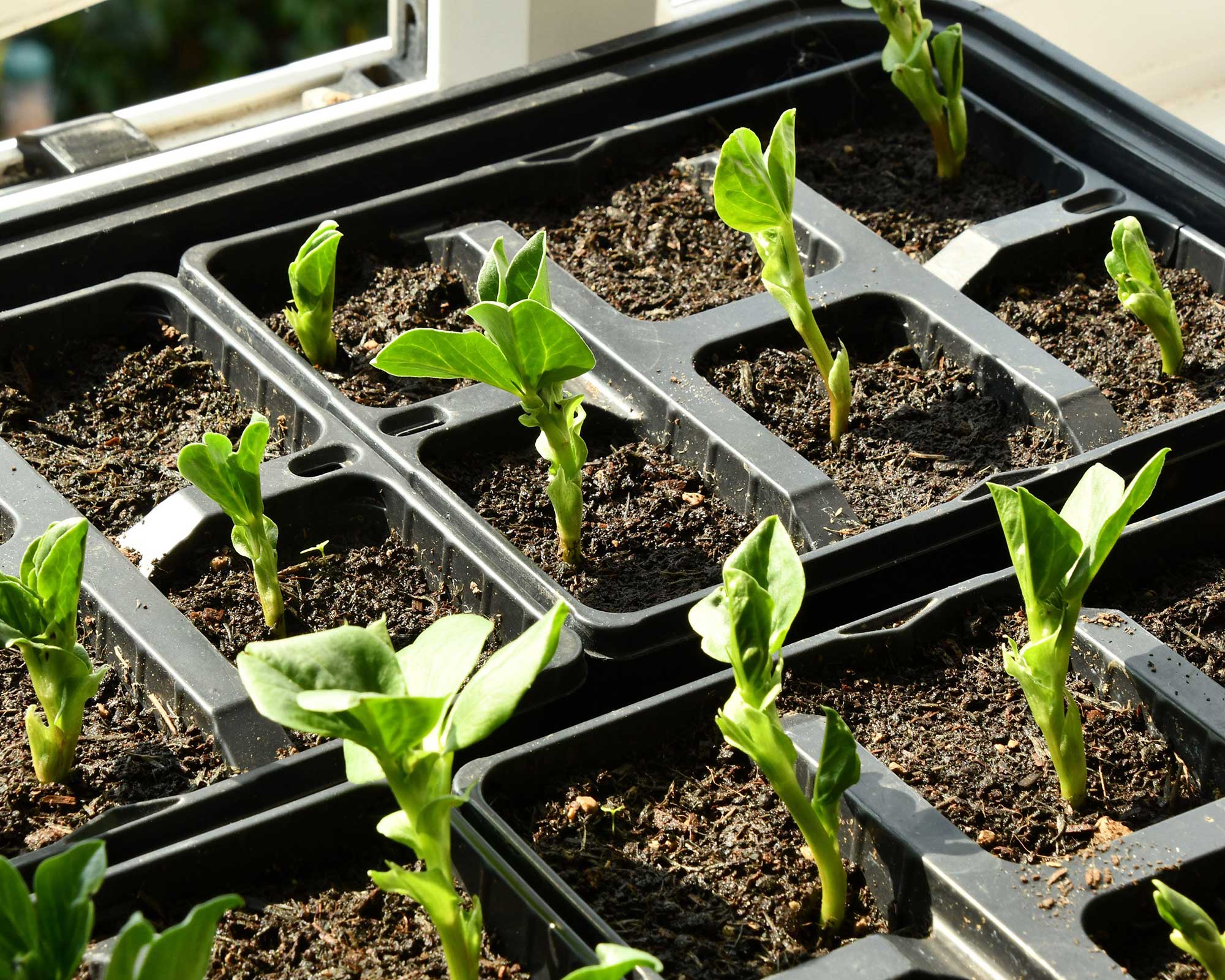
Is peat-free compost more expensive?
Reports are growing that peat-free compost prices are higher than those of the traditional bagged compost containing peat. And, if you're after cheap garden ideas, this might be a concern. We asked Craig Sams of Carbon Gold to explain why gardeners are seeing this disparity in prices.
Craig points out that the main reason for the disparity in pricing has to do with the huge difference in production scales. Demand for peat-free products is growing, but the vast majority of peat-free compost manufacturers at the moment are much smaller than those that still sell peat. 'Makers of peat-free alternatives, using organic resources such as biochar and coconut coir, tend to be operating on a much more sustainable scale than peat compost makers,' Craig says.
Craig also makes the important point that while peat is cheaper, its long-term costs to the environment are high: 'Peat-based products tend to be manufactured by large organizations who farm for peat on a mass scale, destroying a rich biodiverse environment in the process. Peat is cheap – you just drain a peat bog and shovel the peat into compost bags. What you leave behind is a greenhouse-gas-emitting mess. If you had to pay a carbon tax, peat would be the most expensive compost of all.'
Then there are the further details of the manufacturing process to consider, such as any appropriate certifications (many peat-free products are also Soil Association certified) and packaging materials: 'Organic producers also favor more ethical and organic manufacturing processes and packaging, all of which costs money.'
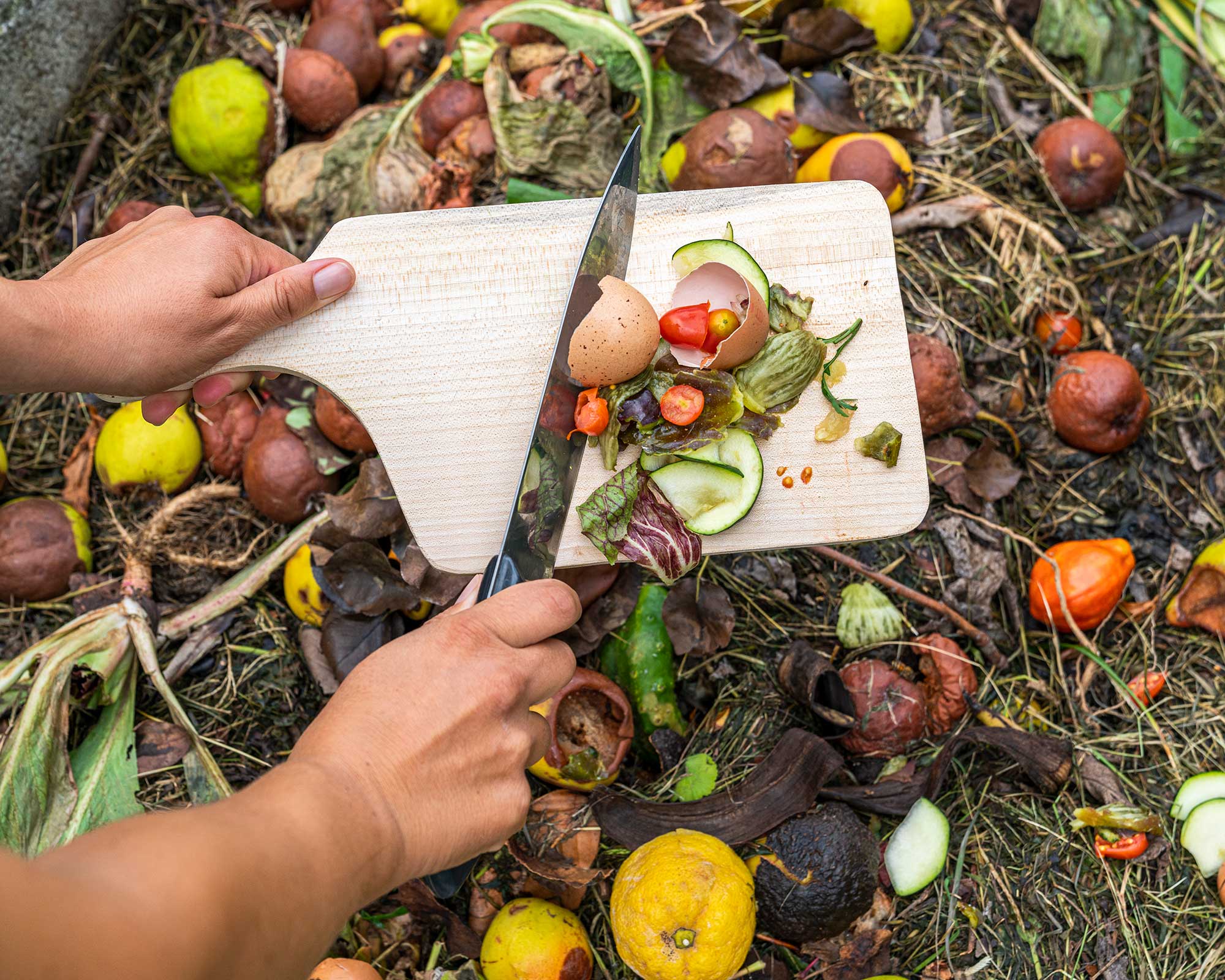
But ultimately, the higher cost of peat-free compost is temporary. 'As demand for peat-free products increases, organic manufacturers will benefit from the scales of economy,' concludes Craig. Paradoxically, although high demand is currently pushing up prices for a product that's not produced on a high-enough scale, this very demand will, eventually, help manufacturers up the scale of production and reduce prices.
Alternatively, you could always have a go at making your own compost at home – it's free to do and, if you monitor what you put into it, can be perfect for organic gardening.
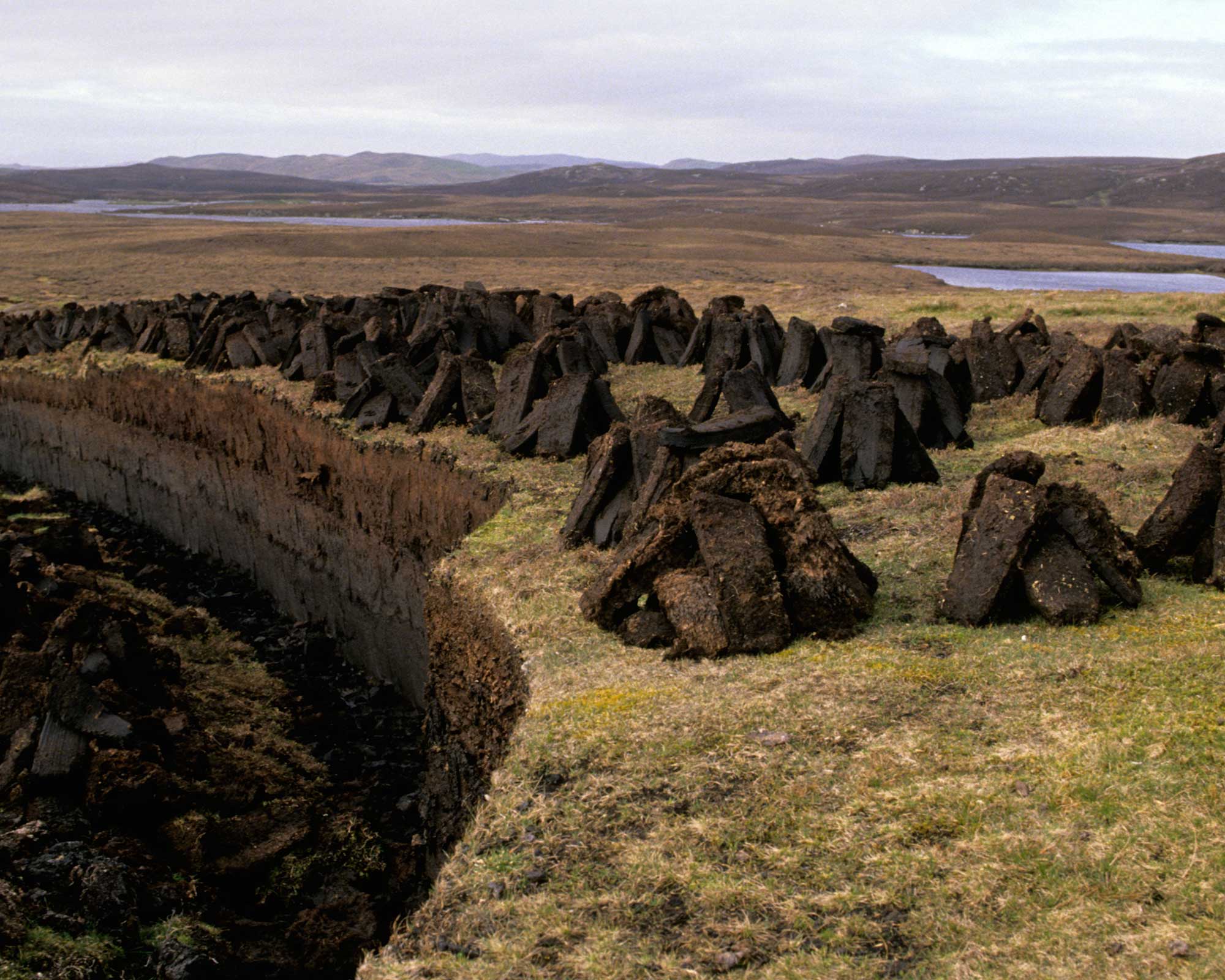
Is peat compost going to be banned?
'Ten years ago the [UK] government announced the intention to halt all retail peat by 2020 and all horticultural peat use by 2030,' says gardening expert Monty Don. 'However, the retail sector and horticultural trade have fallen grievously short of those modest targets.' As The Wildlife Trust states, in the UK, no well-known retailers (except the RHS) met the 2020 target. And, only 4/21 major retailers have committed to ending peat sales this year.
There is huge public support to stop peat-based compost sales completely, with a recent petition from the Wildlife Trusts attracting over 40,000 signatures. The UK government has now banned peat compost sales from 2024.
Craig Bennett, Chief Executive of The Wildlife Trusts, says, 'If garden retailers are serious about their responsibility to tackle climate change, they will stop selling peat compost right now. There is no time left to spare and there are no excuses left to stall with.
'We challenge retailers to be ambitious and step up to the challenge as soon as possible – rather than waiting until they are forced by the government to stop sales of this outdated and unnecessary product.'
Anna writes about interior design and gardening. Her work has appeared in Homes & Gardens, Livingetc, and many other publications. She is an experienced outdoor and indoor gardener and has a passion for growing roses and Japanese maples in her outside space.
